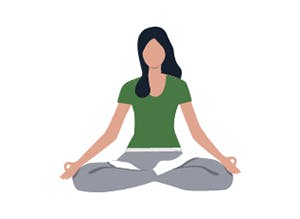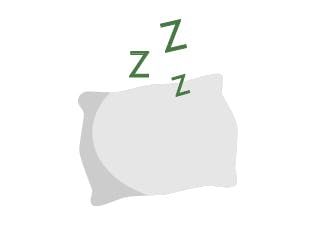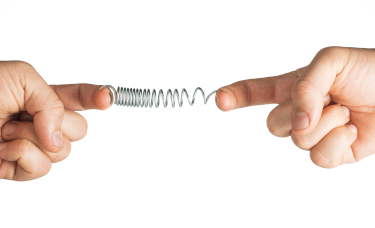You can really bend your way to a calmer mood. Here’s how.
Whether you’re a pro or novice, yoga is an excellent way to calm your stress levels. Yoga uses slow and deep belly breaths to lower your body’s levels of the stress hormone cortisol and encourages people to practice “mindfulness,” which can help combat stress over the long-term. In addition, non-impact moves help you get the stress-relieving benefits of physical exercise.
The best part: you don’t necessarily need a studio to practice. After you master the basics, you can practice on your own time and in your own space—even if that means doing yoga for stress relief in your own living room. When you’re stressed to the max, climbing onto the yoga mat might not be your first move. But for some, it could be a smart one. Stress can contribute to headaches, and taking steps to reduce stress may help some people avoid them.
Learn more about yoga for stress relief.
HERE ARE FIVE REASONS YOGA CAN REDUCE STRESS

1. IT DEEPENS YOUR BREATHING
There’s a reason people say, “take a deep breath.” Deep breathing literally slows your sympathetic nervous system, which acts a lot like a gas pedal for your body, says Donielle Wilson, ND, CPM, CNS, author of The Stress Remedy. Yoga uses slow — and most importantly, deep — belly breaths to lower your body’s levels of the stress hormone cortisol, as well as supply your brain with more of the oxygen it needs to work at its best. The result: you’re calmer and better able to solve the problems causing you stress.
2. IT TEACHES MINDFULNESS
When people are stressed, it could be because they’re dwelling on the past or worrying about the future. Yoga, however, encourages people to pay attention to their feelings in the present moment, a skill often termed “mindfulness.” Practicing mindfulness techniques within your yoga practice — and then implementing them throughout the day — can help combat stress over the long-term, Wilson says. In fact, one study in the American Journal of Health Promotion found that people significantly reduced their stress levels after participating in an eight-week program in which they learned, practiced, and applied “mindfulness meditation” to daily life situations. Even better, the participants maintained the stress-slashing results three months later.1


3. IT IMPROVES SLEEP
Stress and sleep (or rather a lack thereof) is a vicious cycle. Stress can throw off your sleep, which, in turn, makes you even more stressed, Wilson says. Yoga for stress relief can help break the cycle. In one study, researchers found that chronic insomnia patients significantly improved the number of hours they slept each night — as well as the quality of that sleep — after practicing yoga for just eight weeks.2











